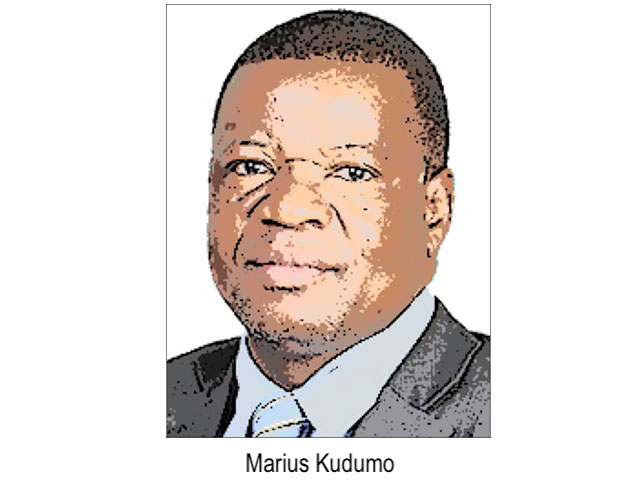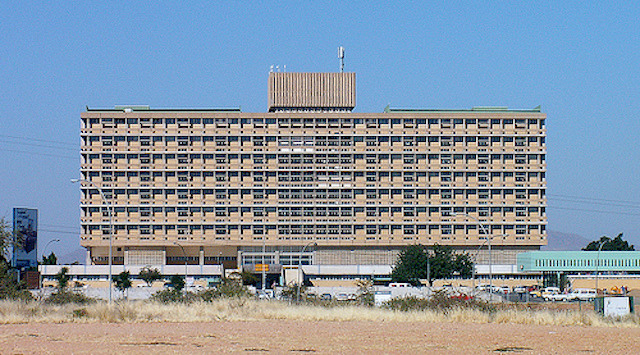MARIUS KUDUMOSINCE time immemorial, education has always been ideological. What societies ought to become is influenced by the clarity of definitions about themselves, their perspectives regarding the meaning of life, and relations with others.
Education plays a critical role in character formation.
Against this background, nations continue reflecting about the philosophical underpinnings, purpose and relevance of their education systems.
The then All Africa Teachers’ Organisation and the then World Confederation of the Organisations of the Teaching Profession (WCOTP) convened a conference in the late 80s in Accra, Ghana, under the theme: ‘What education for Africa in the year 2000?’. Unesco in 1996 published a report of the International Commission on Education for the Twenty-First Century.
In the case of Namibia, the country has had two presidential commissions on education since independence. Generally, the purpose of conferences and commissions is to reflect on the principles and content that should underpin education systems in an ever-changing, culturally diverse and globally competitive environment.
The Unesco commission briefly underscored four principles that should underpin education systems: acquiring knowledge (learning to know), learning to do (skills), learning to be (values and attitudes), and learning to live together (co-existence).
Higher education institutions in South Africa are engaged in discourses about a decolonisation of the curriculum. At the centre of this debate is the fundamental question of relevance of the curriculum as it speaks to the African knowledge systems, realities, experiences and conditions.
As is the case in the contexts of global educational development, Namibia has embarked upon reforming the general education system, especially the structure of the system. We are told that the purpose is to make the education system nationally and globally relevant.
One expectation of this reform, as some of us have wished, was to define the philosophical underpinning of the Namibian educational system.
Firstly, what type of personality should the Namibian education system produce? Secondly, how will the system produce such citizens? A lost opportunity in this process has been to disregard the role and place of indigenous languages in the Namibian education system.
This neglect will cost this country dearly in terms of self-definition, asserting pan-Africanism and identity formation, and the transmission of values and attitudes.
Kwesi Prah, at a conference organised by the pan-African Student Society in 1999 in Windhoek under the theme: ‘The African Origin of Civilisation and the Destiny of Africa’, observed as follows: “All people in the world develop and advance on the basis of their culture and history while absorbing whatever can be absorbed from outside, which improves what they already have, without abandoning their own.”
Prah has also argued that major features of humankind include commonality of religion, geography, language and mythology.
In the process of the general education reform, public policymakers and bureaucrats in the ministry of education and culture have abolished the effective teaching and examination of literature in indigenous African languages from Grade 10 on the advice of Cambridge. They have replaced it with orature.
The ministry, however, has retained the effective teaching and examination of literature in European languages. This is against the spirit of equality of languages and cultures, as expressed in the Constitution and education policy documents.
How will Namibia transmit indigenous knowledge systems, cultures, values and attitudes that speak to African identities if not through indigenous African languages, including literature? It is unfortunate that this has happened or is happening while Namibians are going on with their normal business, while the education system is diminishing their African identities and being assimilated in European thought and value systems.
This criticism is not to discourage European languages, but to argue for multilingualism and mutual respect for all languages in education.
The Generic First Language Syllabus Ordinary Level for African Languages articulates the treatment of first languages on an equal basis while practising discrimination at the same time. The reason for the marginalisation of indigenous African languages, we understand, is that these languages do not have voluminous literature books.
Those of us who have studied European languages at university level would argue that it is not about the size of the books, but the difficulty level and content. How Cambridge has convinced officials of the ministry with this neo-colonial reasoning is beyond comprehension.
My plea to the Namibian public is to pay attention to the education reforms. It is about the future of Namibia.
• Marius Kudumo is director of international relations at the Namibia University of Science and Technology (Nust).
Stay informed with The Namibian – your source for credible journalism. Get in-depth reporting and opinions for
only N$85 a month. Invest in journalism, invest in democracy –
Subscribe Now!










